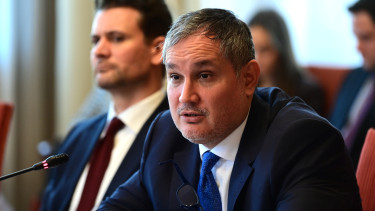Hungarians remain vaccine-wary, with 12.5 million doses of COVID-19 jabs left

Due to the extremely rapid spread of the Omicron variant (B.1.1.529) and the fact that the effectiveness of full vaccination (two doses) wanes over time, those that have received their second jab more than four months ago are strongly urged to get their third shot to boost their protection against infection.
The official portal said today 15.5 million of the 28 million doses of COVID-19 vaccines Hungary has received so far have been used as first, second and third jabs. This means it is up to people to get vaccinated, there is absolutely no shortage of shots, with 12.5 billion doses (AstraZeneca, Janssen, Moderna, Pfizer-BioNTech, Sinopharm) still available.
Data by the European Centre for Disease Prevention and Control (ECDC) are slightly different than what koronavirus.gov.hu reported today, but it does not change the overall picture.


The tally also reveals that nearly 240,000 Hungarians never went back for their second jab. Note that the government posted immunity certificates right after the administration of the first dose.

In a country with a 9.73 million population, 3.21 million people have received three doses of COVID-19 vaccines, while about 3.5 million people have decided they are good, don't need to get inoculated against coronavirus.
The 7-day average of COVID-19 vaccines administered per day is 1,755 for first, 3,515 for second and 5,881 for third doses.

Last autumn, Hungary ordered two million doses of Pfizer-BioNTech’s Comirnaty vaccine for children. Deliveries will be made in 2022 and 2023, but the first shipment of 138,000 doses has arrived already on 13 December 2021. 150,000 doses are scheduled for delivery in January, of which 48,000 doses have been received on 4 January, and another 48,000 doses are expected on 11 January and 54,000 on 18 January.
When you see the demand for COVID-19 vaccines by parents, the first words that pop into your mind are definitely not ‘concerned’, ‘responsible’ or ‘enthusiastic’. Slightly more than 50% of the 12-17 age group have been vaccinated in Hungary, and the graphs below attest that demand for COVID-19 jabs among the parents of children aged 5 to 11 is also slack.

Late last year, Hungary opted back in EU vaccine procurements, ordering 9.5 million of Pfizer-BioNTech’s vaccine adapted for the Omicron variant.
In scope of this procurement, Hungary is to receive 3 million doses of the vaccine in the second half of this year and 6.5 million in 2023, including 1.5 million doses for the vaccination of children.
In late May 2021, the European Commission confirmed a new deal with Pfizer-BioNTech for the possible purchase of up to 1.8 billion doses until 2023, following 600 million doses ordered via the two previous contracts.
Hungary was the only EU country that decided not to be part of the joint purchase, expressing confidence in the country’s own supply of vaccines. Gergely Gulyás, Orbán's chief of staff, argued that even if a booster was needed, "there are plenty of vaccines from Eastern and Western sources as well.”
“It was a wise and responsible decision by the government not to participate in the second round of EU vaccine procurement”, Gulyás said at the Hungarian parliament’s justice committee’s annual hearing less than three weeks ago.
At the same time, Foreign Minister Péter Szijjártó said Hungary was not in talks with either Russia or China about new shipments of the Sputnik V or Sinopharm vaccines to Hungary. “The next shipment of vaccines will most certainly not include vaccines from the East. Both Sputnik and Sinopharm suppliers have fulfilled the contracts we have previously signed,” he said.
Hungary's long-term goal is to be self-sufficient in vaccines, which is why the National Vaccine Factory is being built in Debrecen,
where the production of the Hungarian coronavirus vaccine - currently under development - is also planned,” the official government portal said today.
The problem with this vaccine plant is that it will not be ready for mass production before the end of 2022. More importantly, according to current plans, it will not be equipped to produce mRNA vaccines. As regards vaccines using inactivated virus it is unclear how quickly they can be adapted to new variants. It is also a fact that their effectiveness becomes seriously compromised in elderly people.
Cover photo: Getty Images






